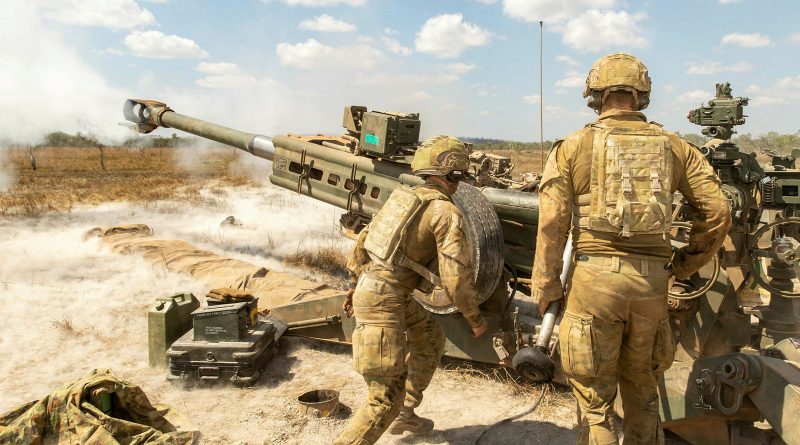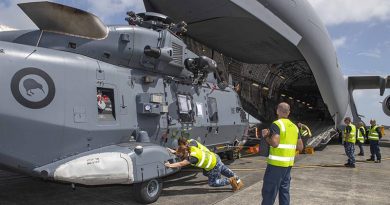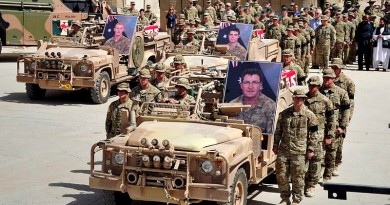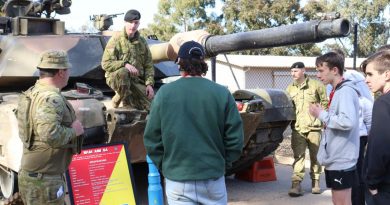150-gun salute to Australian artillery

The formation of an Australian artillery capability 150 years ago marked an initial step in Australia becoming a sovereign nation, according to the Head of Regiment of the Royal Regiment of Australian Artillery, Brigadier Richard Vagg.
CAPTION: Gunners from the 101st Battery, 8th/12th Regiment, Royal Australian Artillery, fire an M777A2 Howitzer at Mount Bundey Training Area, Northern Territory, as part of an Australia-wide gun salute to mark the 150th anniversary of Australian artillery on 1 August 2021. Photo by Corporal Rodrigo Villablanca.
The first permanent Australian artillery unit was established on 1 August 1871, when the NSW Colonial Government raised and funded a battery.
The history of Army’s longest continuous serving permanent unit, A Battery, can be traced to that original NSW battery.
Commemorative services were held around the country on August 1 to mark the 150th anniversary.
Brigadier Vagg told those gathered at Mount Pleasant in Canberra that the enduring story of Australian artillery began after 1870 when the last British forces left the colonies of Australia.
“This anniversary is therefore a special day for every Australian, not just for gunners, as 1871 marks the year from when Australia’s colonial governments made a permanent commitment to their own self-defence – one of the hallmarks of sovereignty and nationhood,” Brigadier Vagg said.
“Today, Australia’s gunners continue to serve proudly across the nation.”
A sequential 150-gun national salute, which was planned to fire from locations around Australia, used a mix of M2A2 105mm and M777 155mm Howitzers.
While most of the planned firings, including a live fire at Mount Bundey Training Area in the Northern Territory, went ahead, the firings at the historic Fort Lytton in Brisbane and at the Melbourne Shrine of Remembrance were postponed because of COVID-19 restrictions until later in the year, which will complete the full national salute of 150 rounds.
The first guns fired for the national salute were fired from Mount Pleasant, where more than 180 people gathered for a commemorative service, including current- and former-serving members.
Speaking about the continued relevancy of artillery on the battlefield, Brigadier Vagg said artillery remained a vital blend of the science and art of war.
“Today, the realm of the 21st century gunner extends across multiple disciplines and domains,” he said.
“Ready now as always, the artillery’s critical capabilities are essential to winning battles – including not just guns and mortars, but rockets, missiles, drones, radars and, most vitally, the provision of essential joint-fires coordination.
“Looking ahead, the future-ready Royal Australian Artillery is unquestionably at the forefront of the Australian Army’s modernisation program, with projects delivering new air-defence systems, self-propelled artillery, long-range rockets, surveillance, reconnaissance and targeting systems, digital terminal control to strike targets, and new artillery ammunition.”
The 1 August commemorations ended with a Last Post ceremony at the Australian War Memorial honouring the life of Corporal Frank Matt, a gunner who was posthumously awarded the Distinguished Conduct Medal for his actions at the Battle of Pozieres during World War I.
More events marking the 150th anniversary have been scheduled, with a new Queen’s Banner and Captain General’s Sword to be presented later in the year.
.
.

.
.





